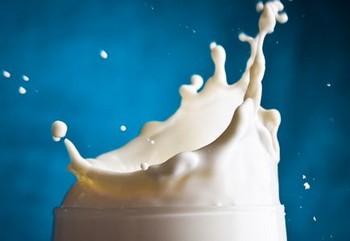You know exactly how much protein you need to shake it shaker cup to pump up your workout, and your carb intake is locked in. Your creatine needs are fully met. But did you know that the vitamins you take are the key to actually boosting performance and building muscle?
Vitamins and minerals are especially important for bodybuilders because our workouts are tough. And when we sweat, we lose a lot. And when we don’t replenish and maintain the levels we need, it leads to poor performance, slow growth and increases in lift, and even other health problems.
Here are the top ten vitamins to ensure you get what you need to keep performing at your best every day.
Vitamin B12
What does it do:
Vitamin B12 helps maintain the tissues of your nervous system, which carry signals from the brain to the muscles. They are important in their contraction, coordination and growth.
Where to get it:
Animals, including beef, chicken, fish and pork, and supplements.
Biotin
What does it do:
Biotin helps you metabolize amino acids and produce energy. It’s especially important to watch your biotin levels if you eat raw egg whites, which can block biotin absorption.
Where to get it:
Egg yolk, liver, kidney, pancreas, milk, soy and barley.
Vitamin B2
What does it do:
Metabolizes glucose, oxidizes fatty acids, and helps increase energy. Studies show a strong correlation between lean body mass and dietary riboflavin.
Where to get it:
Liver, almonds, soybeans, shellfish, milk and other dairy products, and eggs.
Vitamin A
What does it do:
Improves vision, is important for protein synthesis (which leads to muscle growth), and is part of the production of glycogen, the body’s energy source for high-intensity exercise.
Where to get it:
Liver and fish oils, milk and eggs, green leafy vegetables, orange and yellow vegetables, tomato products, fruits, and some vegetable oils
Vitamin E
What does it do:
A powerful antioxidant, it protects cell membranes which are essential for muscle recovery and growth.
Where to get it:
Vegetable oils, nuts, green leafy vegetables and fortified cereals.
Niacin (vitamin B3)
What does it do:
Helps metabolic processes that produce energy.
Where to get it:
Turkey, dairy, other poultry, fish, lean meats, nuts, and eggs.
Vitamin D
What does it do:
Helps the body absorb calcium and phosphorus, which are essential for full, hard muscle contraction.
Where to get it:
Skim and low fat milk.
Thiamine (vitamin B1)
What does it do:
Needed for protein metabolism and growth, plus aids in the formation of hemoglobin, which transports oxygen to working muscles. With increasing intensity and duration, more thiamine is required.
Where to get it:
Green beans, spinach, liver, beef, pork, navy beans, beans, pinto beans, bananas, soybeans,
whole grains and fortified grains.
Vitamin B6
What does it do:
B6 is directly related to protein intake: the more protein you eat, the more B6 you need. B6 is essential for the metabolism and use of proteins and carbohydrates.
Where to get it:
Avocados, nuts, liver, chicken, fish, green beans, field salad, wheat germ, nutritional yeast, sea vegetables and bananas.
Vitamin C
What does it do:
Antioxidants that also promote recovery and growth of muscle cells. Helps form collagen, which strengthens your connective tissue and helps reduce the risk of injury when lifting heavy weights.
Where to get it:
Guava, green and red peppers, kiwi, oranges, grapefruit, strawberries, Brussels sprouts and melon.
Add some of them into the next protein shakes recipe!








